As an Amazon Associate, I earn from qualifying purchases
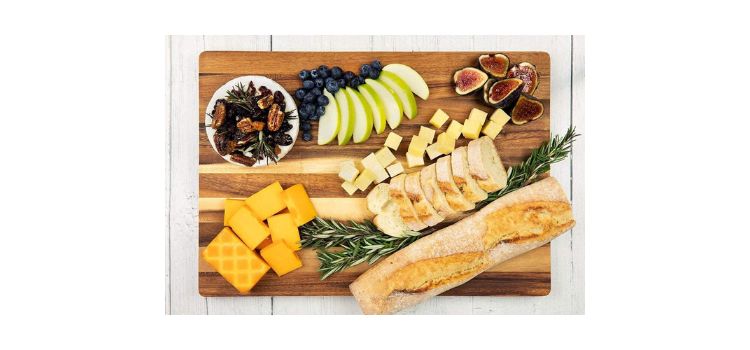
If you’re someone who enjoys cooking or spends time in the kitchen, you’ve probably encountered the debate about the best material for a cutting board. Wood, bamboo, plastic – the options are plenty, but have you ever considered the unique charm and functionality of olive wood? In this article, we’ll delve into the question: Is olive wood good for a cutting board? Let’s explore this beautifully crafted and environmentally friendly option that not only adds character to your kitchen but also offers practical benefits.
The Beauty of Olive Wood
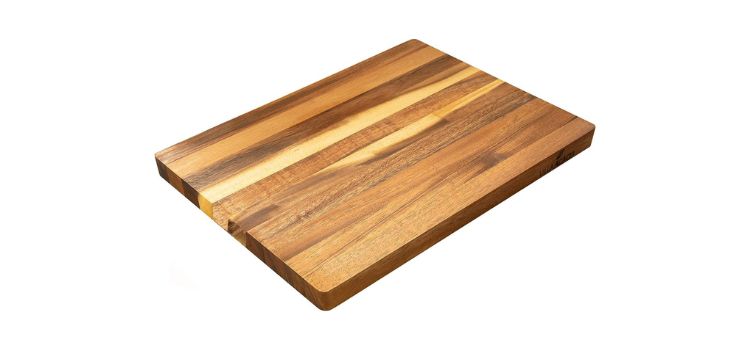
Imagine a cutting board that not only serves its purpose but also adds a touch of elegance to your kitchen. Olive wood is known for its stunning natural grain patterns and warm colours. Each olive wood cutting board is a unique piece of art, making it not just a functional tool but also a visual delight.
Durability and Longevity
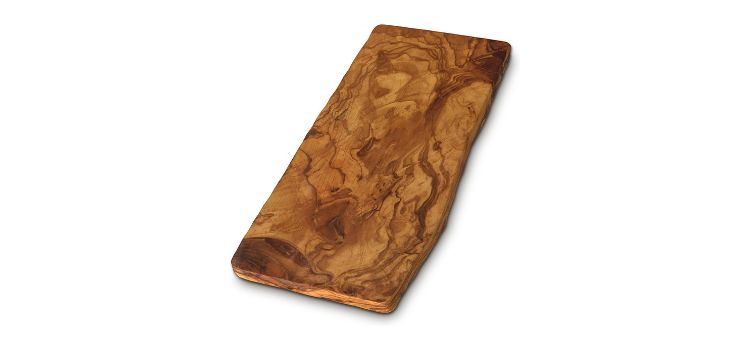
A cutting board should withstand the test of time, and that’s where olive wood shines. Its dense and tight grain structure provides excellent durability. Olive wood cutting boards are less prone to cracking and warping, ensuring they remain in top-notch condition even after years of use.
Knife-Friendly Surface
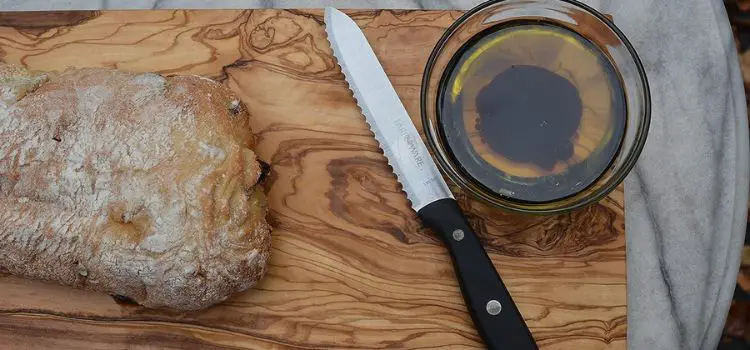
Ever sliced ingredients on a surface that’s too hard, causing your knives to dull faster? Olive wood offers a balance between toughness and softness, making it gentle on your knife edges. This means your knives stay sharper for longer, saving you both time and money on constant sharpening.
Learn About Is Cherry Wood Good for Cutting Boards?
Natural Antibacterial Properties
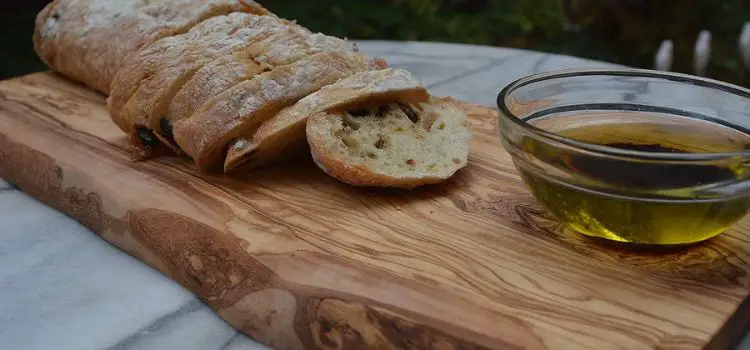
Food safety is paramount in any kitchen. Olive wood has natural antibacterial properties that can help inhibit the growth of harmful bacteria on the surface. This unique trait makes olive wood cutting boards a hygienic choice for meal preparation.
Maintenance and Care
Maintaining your cutting board is critical to its longevity. To keep your olive wood cutting board in optimal condition, simply wash it with mild soap and warm water. Regularly applying food-safe mineral oil can help prevent the wood from drying out and maintain its lustre.
Sustainability and Eco-Friendliness
In an era where sustainability matters, olive wood cutting boards stand out. Olive trees are known for their resilience, requiring minimal water and resources to thrive. Choosing olive wood contributes to sustainable practices, making it an eco-friendly choice for environmentally conscious cooks.
Comparing Olive Wood to Other Materials
How does olive wood stack up against other popular cutting board materials like bamboo, plastic, and hardwood? While each material has its merits, olive wood’s combination of beauty, durability, and knife-friendly attributes puts it on par with the best options available.
Where to Buy Olive Wood Cutting Boards
Ready to add an olive wood cutting board to your kitchen? They can be found in specialty kitchen stores, online retailers, and even local artisans’ markets. When purchasing, ensure you’re getting a genuine olive wood product and follow care instructions to enjoy its benefits to the fullest.
You Can See Best Wood for Ooni Pizza Oven: The 5 Best Wood Of 2023
Conclusion
In the realm of cutting boards, olive wood emerges as a versatile and reliable choice. Its visual appeal, durability, knife-friendliness, and natural antibacterial properties make it an attractive option for both amateur home cooks and professional chefs. By investing in an olive wood cutting board, you’re not only enhancing your culinary experience but also contributing to sustainable practices.
(FAQs) About: Is Olive Wood Good for Cutting Board?
Yes, olive wood cutting boards are suitable for various types of food, including fruits, vegetables, meat, and cheese.
It’s recommended to oil your olive wood cutting board every month or as needed to prevent it from drying out.
Olive wood cutting boards have a moderate weight, providing stability during use without being overly heavy.
While olive wood is durable, extreme temperature and humidity changes can cause cracks. Proper care and maintenance can minimise this risk.
While olive wood is versatile, it’s best to avoid cutting extremely acidic foods as they might affect the wood’s appearance over time.
Last Word: Investing in an olive wood cutting board not only enhances your cooking experience but also brings a touch of nature’s elegance into your kitchen. Its unique properties, combined with its aesthetic appeal, make it a valuable addition to any culinary space. So, why not elevate your cooking game with the beauty and functionality of olive wood?
Leave a Reply